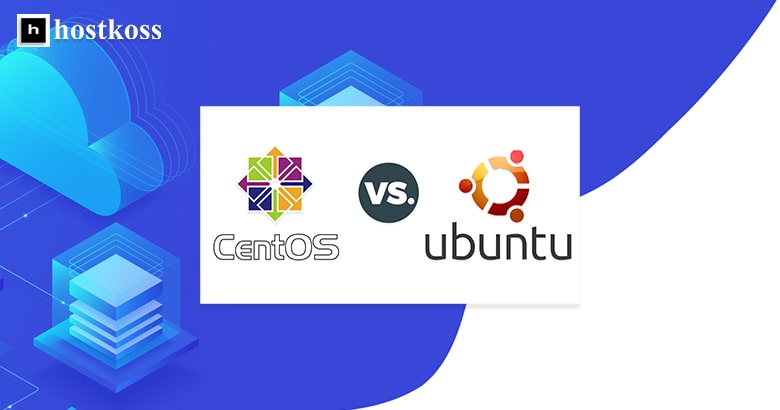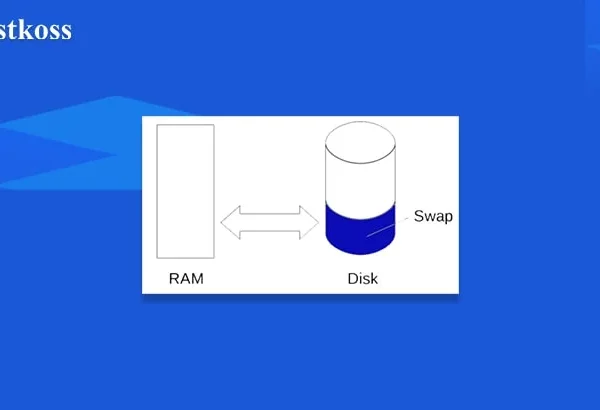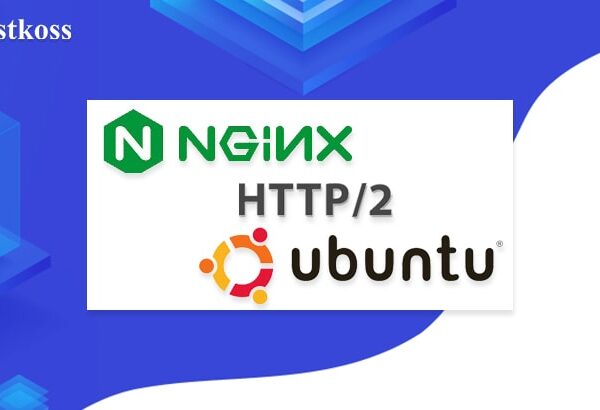In today’s comparison, we’ll look at two of the most popular Linux distributions: CentOS and Ubuntu. We’ll explore their differences, features, advantages, and disadvantages to help you decide which one is best for your server.
CentOS: what is it? Advantages and disadvantages
CentOS, which stands for Community ENTerprise Operating System, was born in 2004 when Red Hat distributed the source code of Red Hat Enterprise Linux (RHEL) for public use, albeit without official support. CentOS is a free, stable and fully functional version of RHEL.
| Advantages of CentOS: | Disadvantages of CentOS: |
| Security and stability: CentOS releases new versions every two years and provides regular updates. The server version is supported for an impressive 10 years. | Learning curve: Compared to Ubuntu, CentOS can be more difficult for beginners due to its technical nature and configuration requirements. |
| Free access to Red Hat functionality: CentOS offers most of the paid features of Red Hat Enterprise Linux, making it an attractive choice for those looking for cost-effective solutions. | Documentation in English: Most of the CentOS documentation is in English, which can be a barrier for those without a basic understanding of the language. |
| Extensive community support: CentOS boasts a large community of users and developers who provide support in many languages. | |
| Easy maintenance: CentOS is compatible with popular hosting control panels such as cPanel, ISP Manager, and DirectAdmin, making it easy to manage your server. |
Ubuntu: Pros and cons
Ubuntu is not only the most popular Linux distribution, but also known for its user friendliness and ease of installation. It is suitable for both beginners and advanced users, with a focus on accessibility and usability.
| Plusi Ubuntu: | Cons of Ubuntu: |
| User-friendly interface: Ubuntu is widely known as one of the easiest and most straightforward Linux systems to set up and use. It is especially recommended for beginners and users who do not have extensive administration skills. | Version support period: Non-LTS (Long-Term Support) versions of Ubuntu have a limited support period, usually up to a year, after which an upgrade requires a system reinstall. LTS versions receive security and kernel updates for about five years. |
| Large community and documentation: Ubuntu has a huge community and rich documentation in several languages, including Russian. Technical support is easily accessible through forums and various channels. | Stability when using custom configurations: While Ubuntu LTS works reliably with the default settings, configuring custom features can lead to errors and bugs that potentially hinder system performance. |
| Software availability: Ubuntu boasts a large software library, including a number of new and popular programs. If a program you need is not available in the repository, you can often install it using PPA (Personal Package Archives). | Incompatibility with cPanel: Unlike CentOS, Ubuntu does not support cPanel. However, it does offer alternative control panels such as ISP Manager and VestaCP. |
Differences between CentOS and Ubuntu
The main differences between CentOS and Ubuntu lie in their foundations, support, and community resources.
Ubuntu is based on the Debian architecture and has its own specialized support and a large community with extensive documentation, including Russian-language resources. CentOS, on the other hand, is based on the Red Hat Enterprise Linux source code and has no official support from Red Hat. Its community and documentation may be less extensive than Ubuntu, especially in languages other than English.
Package management also differs between the two distributions. Ubuntu uses the apt-get package manager to download DEB packages. In CentOS, packages are installed through a central repository using the yum command.
CentOS prioritizes software stability and quality over frequent updates.
Choosing between CentOS and Ubuntu: Which one to choose?
When it comes to choosing an operating system for servers and large companies, CentOS is often at the top of the list. If you have prior knowledge and experience with this system, CentOS has a number of advantages that make it an attractive choice.
One of the significant factors that make CentOS attractive is the long period of version support. Such stability and long-term support are decisive factors for companies and entrepreneurs when choosing an OS for their projects. By using CentOS, you can rely on the stability and security of the system, providing peace of mind for your project.
However, it is worth noting that CentOS RPM packages are not updated as often as in Ubuntu. They are in a repository that may not offer all the latest software versions. On the other hand, older versions of software are more readily available in CentOS, making them easier to find and ensuring compatibility and stability. If software availability is a priority for you, Ubuntu comes out on top in this regard.
If you prefer a steady stream of updates, Ubuntu might be a better choice. It offers more frequent updates to its software packages. This constant update cycle can be attractive to those who value the latest features and improvements.
In terms of ease of use, Ubuntu is a very user-friendly option, especially for beginners. It is easier to install and configure even for those who do not have extensive knowledge and skills. If you’re new to Linux and don’t have a basic knowledge, Ubuntu will provide you with an easier experience.
We’ve covered some of the key points about these popular operating systems, but it’s important to remember that personal opinion and previous experience with other systems can influence your decision. Ultimately, the choice depends on your specific needs and requirements.
If you have any doubts or need help, our 24/7 technical support team is here to help. Feel free to contact us and we will be happy to help you make the best decision for your project.
Read also:
- Setting up HTTP/2 support in Nginx on Ubuntu 18.04
- What is a VDS/VPS server and how to choose the best one
- What is guaranteed memory and SWAP?
FAQs (Frequently Asked Questions)
When it comes to choosing between CentOS and Ubuntu for your server, it ultimately depends on your specific requirements. CentOS prioritizes stability and reliability, making it an excellent choice for enterprises. On the other hand, Ubuntu offers a balance of stability and innovation, catering to a broader range of users, from novice to expert.
Both CentOS and Ubuntu prioritize security, regularly releasing updates and patches to address vulnerabilities. However, CentOS’s focus on stability may result in slower updates compared to Ubuntu, which emphasizes rapid development and security enhancements.
Yes, migrating between CentOS and Ubuntu is feasible but requires careful planning and execution. It involves backing up data, reinstalling the new OS, and restoring configurations. Additionally, compatibility issues with software and dependencies may arise during the migration process.
Ubuntu typically boasts a larger and more active community compared to CentOS. This vibrant ecosystem translates to extensive documentation, forums, and community-driven support channels, making Ubuntu an attractive choice for users seeking readily available assistance.
Performance benchmarks may vary depending on the specific workload and hardware configuration. Generally, Ubuntu tends to prioritize performance optimizations and cutting-edge features, whereas CentOS prioritizes stability over bleeding-edge performance enhancements.
Yes, both CentOS and Ubuntu are open-source and free to use. However, certain enterprise editions and support packages may incur costs, particularly for organizations requiring dedicated technical support and extended maintenance services.



